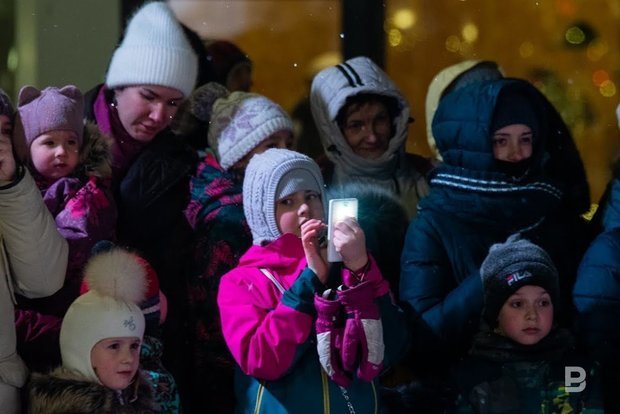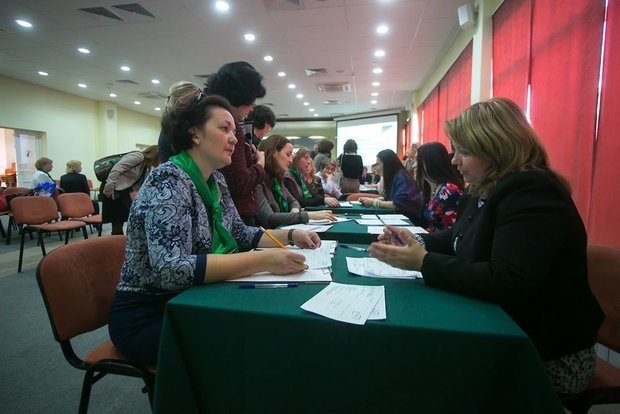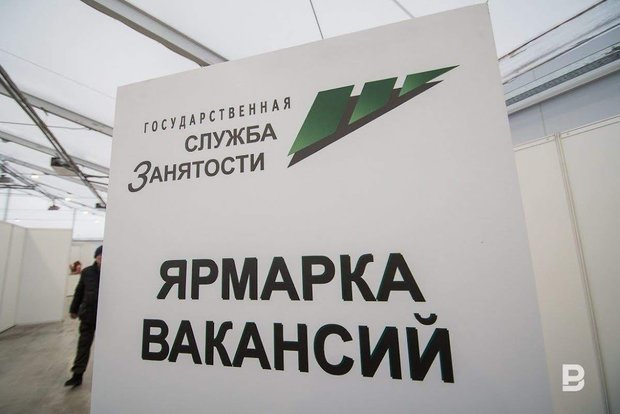On the verge of social explosion: every sixth Tatarstan citizen lives below poverty line
The government of the Republic of Tatarstan is forced to increase the package of support for the poor by almost half. There is no money for the poor
In Tatarstan, almost 25 billion rubles will be allocated for social support measures in 2022, which is by 10 billion more than in the pre-pandemic 2019 year. Families with children will be supported first of all — thanks to federal and republican support, the number of large families has grown 1,5 times in almost 10 years, amounting to more than 40 thousand by the end of 2021. At the same time, the number of people below the poverty line in Tatarstan is declining very slowly — there are still more than 250 thousand people. According to official data, the reality may be worse. About who and how much can get starting from 2022, how long they will financially help those who decide to become entrepreneurs, and what the ministry of labour of Tatarstan thinks about the scandal in Nizhnekamsk about depriving children from large families of free meals — read in the material of Realnoe Vremya.
Almost 25 billion rubles will be allocated for social support in Tatarstan in 2022
As Elmira Zaripova, the minister of labour, employment and social protection of the Republic of Tatarstan, told on 15 February, the amount of budget funds allocated for social support measures will amount to 24,7 billion rubles in 2022, of which 14,1 billion are republican funds. According to the minister, the volumes are growing every year: in 2019, 14,5 billion rubles were allocated for support measures, in 2020 — 19,16 billion, and in the previous year — 22,8 billion. At the same time, the ministry noted, “the number of recipients of measures is reduced through increasing the incomes of citizens and applying the principles of targeting.” 81% of measures today are targeted, whereas in 2015 only 27% of recipients received targeted benefits.
“The focus is on increasing targeting, that is, benefits to those who really need them," said Zaripova.
Families with children — “the most affected by the pandemic” — will be supported first of all
Tatarstan has been among the leaders in terms of the low level of poverty for five years — by the results of 2020, it amounted to 6,6% with the all-Russian 12,1%. However, even today the number of Tatarstan citizens whose per capita income is below the subsistence minimum of 10,4 thousand rubles is 257,5 thousand people. The authorities expect that the poverty rate will decrease in 2022, although not by much — to 6,3%. Against this background, both the republic and Russia as a whole consider the support of “motherhood and childhood” to be a priority for themselves. Not only because of the demographic pitfall due to the crisis of the 1990s, but also because of the coronavirus. According to Elmira Zaripova, families with children could be out of a job during the pandemic, get into lockdown or work part-time, which would affect their financial security. Moreover, 72% of the poor population of Tatarstan are families with children.
The Ministry of Labour of Tatarstan noted that every second ruble in Tatarstan is aimed at supporting these families. In 2022, the department has allocated 11,6 billion rubles for this, of which the federal budget funds — 6,9 billion rubles. Of these funds, a considerable part will go to the payment of maternity capital, which will amount to 524,5 thousand rubles in 2022 at the birth of the firstborn (at the birth of the second it increases by 168 thousand — editor's note).
From July 1, benefits will be made to needy pregnant women who have registered for the period from the sixth week of pregnancy (but no later than the 12th week) in the amount of 50% of the subsistence minimum, or 5,862 rubles monthly.

“Benefits mostly concern young families”
From 2022, a monthly allowance in connection with the birth (adoption) of the first and second child is provided to families whose average per capita income does not exceed twice the subsistence minimum of the able-bodied population, or 23,448 rubles for each family member. They will receive 10,4 thousand rubles each month. In total, 37,7 thousand people in Tatarstan will receive this money — 4,2 billion rubles will be allocated from the republican budget for this. The allowance, as it is known, is paid until the child reaches the age of three, but an application for it must be submitted once a year, the minister said:
“Because the status and income change over the year… Basically, payments concern young families, students, families where one parent works occasionally," she explained and recommended writing an application to those who received an initial refusal in allowances not every month, but once every six months, when the income situation may radically change (the authorities analyse income in the past six months).
“A family beyond the poverty threshold cannot afford a car below the age of five”
Only low-income families are supported in Tatarstan until the children reach the age of seven , since in other cases, parental leave usually ends and the woman goes back to work, that is, family incomes are most likely to increase. Families with two or more living spaces (for example, an apartment and a house), with two or more cars fall out of the circle of recipients. At the same time, if the family claims to receive allowances for up to seven years, the car must be released five years or more ago.
“A family beyond the poverty threshold cannot afford a car below the age of five," the minister of labour explained.
At the same time, she made a reservation, there are also “objective reasons for the lack of these incomes among citizens”, the so-called “zero income” rule. This can be either child care until they reache the age of three, military service in the army, and a three-month period after demobilisation. The periods of lack of income are estimated in aggregate. The allowance is appointed if the period during which there was no income for the specified reasons is 10 months or more in total.
Number of large families in Tatarstan has increased 1,5 times since 2012 — up to 40 thousand
Every year since 2020, to financially support low-income large families, allowances from the budget of Tatarstan are provided in addition in the amount of about 500 million rubles. This money is used, in particular, for gift sets (4,3 thousand families received last year) or, for example, for 100% compensation for kindergarten fees for large families (with an income below the subsistence minimum for each family member).
Thanks to this support, Elmira Zaripova noted, the republic “does not fall by the second and grows by the third” — that is, the number of families with two children does not decrease, and the number of families with three children or more is even growing.
As a result, the number of large families in Tatarstan grew from 24,8 thousand in 2012 to 40,5 thousand in 2021. The share of births of second children has already reached 38%, and the number of third children born annually increases by 2%.
In total, according to the minister of labour, 36,7 thousand people have received benefits for children under three in Tatarstan. In 2022, it is expected that their number will decrease to 25 thousand. On the contrary, the number of recipients for children from three to seven years old in 2022 will grow by a thousand people, up to 48 thousand.
“By the forces of one state, if there is no motivation to work, the situation cannot always be helped”
The second part of the measures is aimed at combating poverty in general. The main tool of assistance is, according to Zaripova, “of course, employment”:
“By the forces of one state, if there is no motivation to work, the situation cannot always be helped. There are stories when people roll back," she noted. “We also have a social contract, a contract between a citizen and the state to overcome the situation. As practice showed in the 1990s, simply “giving money” did not solve the problem in the family, the quality of life did not change. While social contract is a tool when a person makes a commitment. Getting an additional profession promises, for example, or gives an obligation to treat alcoholism, this is also a scourge that affects the quality of life, especially families with children. Or they intend to become an entrepreneur, self-employed or start a personal subsidiary farm. There is a demand. The number of contracts is growing. In 2022, we believe there will be 9,623 of them worth 635 million rubles," she said.

Families with incomes below the subsistence minimum established for socio-demographic groups of the population whose property provision is below the level established by the annex to the Law of the republic as of December 8, 2004 “On targeted social support of the population” can enter the social contract programme. However, in recent years, a problem has emerged concerning the rural population, some of which could not conclude such a contract.
The thing is that when assessing the level of property provision of a family in order to provide assistance on the basis of a social contract, the presence of family members in the ownership of “residential houses and residential premises, non-residential premises, vehicles, as well as land plots whose area per family member does not exceed 0,2 hectares” is taken into account. However, in the conditions of the distribution of “shared investment” lands that took place in the 1990s, most of the poor rural population could not qualify for state social assistance — in 2021, the share of refusals due to the presence of “shared” lands was 18%. To reduce the level of poverty, the authorities of Tatarstan decided, when determining the right of citizens to provide state social assistance, “not to take into account the presence of land plots in their ownership”.
“This will expand the circle of those who have signed a contract, especially among the rural population — about 1,000 rural families will have the opportunity to enter. In 2021, the reason for 600 refusals for low-income families was precisely shared lands," Zaripova explained.
Besides, the authorities of Tatarstan excluded from the list of immovable property taken into account when determining the level of family security, outbuildings up to 15 square metres, not located on land plots intended for private housing construction, maintenance of private farms, garden plots — these are vegetable storehouses, sheds, etc. Also, non-residential premises are excluded, the area of which does not exceed 15 square metres, located in apartment buildings, garage complexes: storerooms, boxes.
“The amount of 150 thousand rubles will allow those who decide to start their own business to purchase equipment”
Tatarstan will provide financial support (in the amount of the subsistence minimum) for finding a job for no longer than 9 months. 150 thousand rubles for 12 months — the same amount can be received by those who decide to become self-employed — the amount will be given on a one-time basis to those who are going to start their own business. In other cases — no longer than six months.
“The amount of 150 thousand rubles will allow those who decide to open their own business to purchase equipment, for example, and after starting a business, enter the programmes of the ministry of economy of Tatarstan," said the minister of labour.

Finally, the third part of the measures will be aimed at “full gasification” of the republic. Those who connected gas after 21 April, 2021, will be entitled to a benefit for laying gas inside the site and house and the purchase (but not installation) of equipment. It will amount to 80 thousand rubles, and war veterans, large families, disabled people of groups I and II, families raising a disabled child, and families with incomes below 10 thousand rubles per family member will have the opportunity to receive them. Sixty thousand rubles can be received by families with an income of 10 to 19 thousand rubles per family member.
The project itself for such subsidy has not yet been adopted, however, and is under interdepartmental approval. In total, 18 thousand objects in Tatarstan require finishing gasification today. The probable number of recipients is 2,5 thousand people.
Zaripova about the scandal in Nizhnekamsk: “It is necessary to understand when you introduce benefits, for how long you can provide them”
The minister also said at the briefing that at the moment there are no problems with salary delays at Tatarstan enterprises — KZSK-Silicon continues to be the main debtor. However, the operational debt — which does not fall under the legislation, and does not cause administrative or criminal measures — is still 200 million rubles, and the authorities of Tatarstan are “working closely on it”. Besides, companies' receipts to the local budget and the transfer of social contributions are monitored in the republic. Even if companies continue to pay salaries, municipalities consider a decrease in such receipts to be a wake-up call.
Zaripova also commented on the recent scandal in Nizhnekamsk, where additional free meals for schoolchildren from large families were cancelled from February 8. The minister pointed out that there are no norms for free meals for these categories of schoolchildren in either Russian or Tatarstan legislation.
“Municipalities themselves have the right to establish additional benefits. And it was established in Nizhnekamsk. But I always say: it is necessary to understand when you introduce benefits, for how long you can provide them. It is a question for the Nizhnekamsk authorities," Elmira Zaripova said.